Why is MX Linux a desirable Windows alternative?
If you're looking for an alternative to Windows but don't like Linux, MX Linux may be the solution you're waiting for.
Linux distributions keep the promise of supporting Windows users when making conversions. Windows 10 has a number of problems, so a really powerful and fully functional alternative like Linux can easily "entice" longtime Windows users to make the switch.
Take a closer look at MX Linux from the perspective of longtime Windows users.
Learn about MX Linux
- MX Linux settings
- Experience the boot MX Linux
- Experience Windows on MX Linux
- Set up the desktop
- Taskbar settings
- Use the new Linux operating system
- Read more about MX Linux
- Enjoy the 'new' PC with MX Linux
MX Linux settings
MX Linux has 32-bit and 64-bit options, so even if you're looking at installing it on an old machine, you won't have any problems.
This test installation is done on Dell Optiplex GX620 2005.
If you are not familiar with the process of installing a Linux distribution, just download the Linux MX and follow the instructions to create a drive or USB ISO capable of booting. The total time from setting up the USB ISO to completing the entire installation process takes less than 15 minutes.
The installation options selected for testing in this article include:
- Choose to install the entire single partition on a 32-bit machine.
- Install the GRUB bootloader (GRUB boot loader) for MX Linux and Windows on Master Boot Record (MBR).
- Select the Samba server installation option for MS network.
- Turn on Autologin and Save live desktop changes .
Experience the boot MX Linux
The boot process after initial setup is very fast. On the test computer in this article, it took less than 30 seconds, only about a quarter of the time needed for previous Windows 7 installation, to run on the same computer.
Please exploit the Welcome window that appears when you first launch Linux MX. It includes a user guide that shows you how to run Windows applications inside a wrapper or any compatible class like Wine.
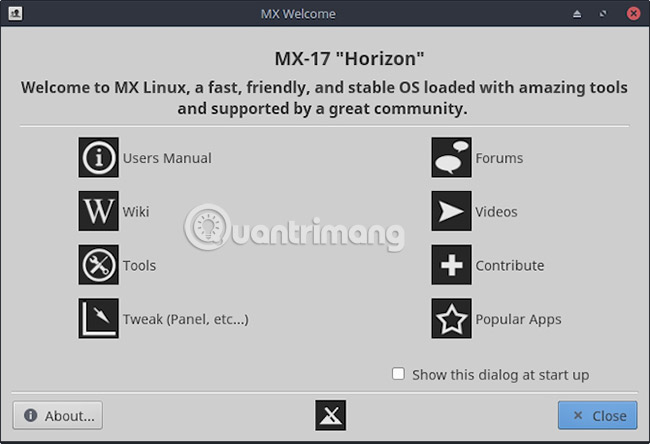
If you click on Tools on the Welcome menu , you will see a window that looks similar to Control Panel in Windows.
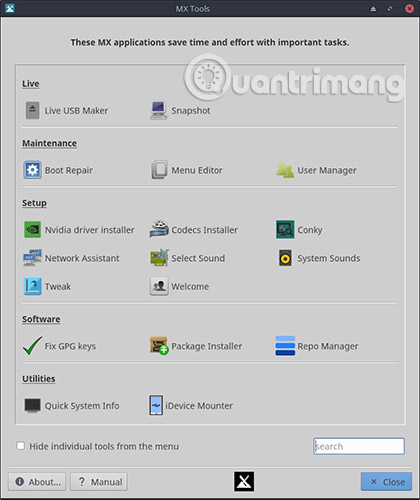
The first thing to do is to install Wine to run any Windows application you need. This also confirms that the Internet connection is working.
Experience Windows on MX Linux
When the operating system boots for the first time, everything may not be completely accurate. Don't worry, with just a few adjustments, everything will look very familiar.
Set up the desktop
Just like in Windows, you can change desktop background settings by right-clicking on the desktop.
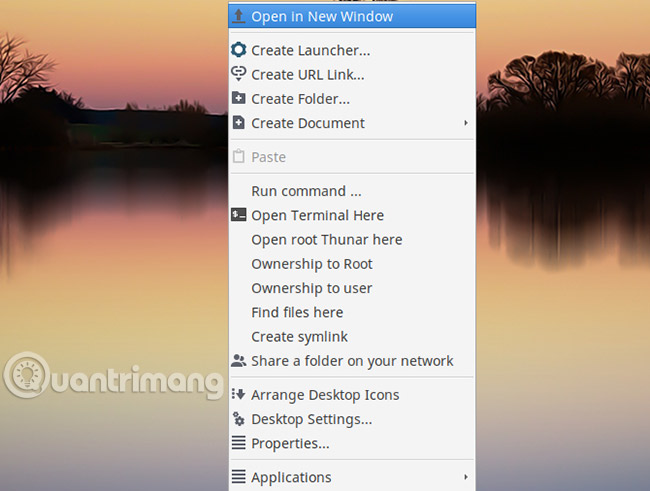
If you are familiar with Windows, many steps will look familiar. Of course, many steps will also look a bit strange. (Additional features are features you don't normally have in Windows).
Now, click Desktop Settings.
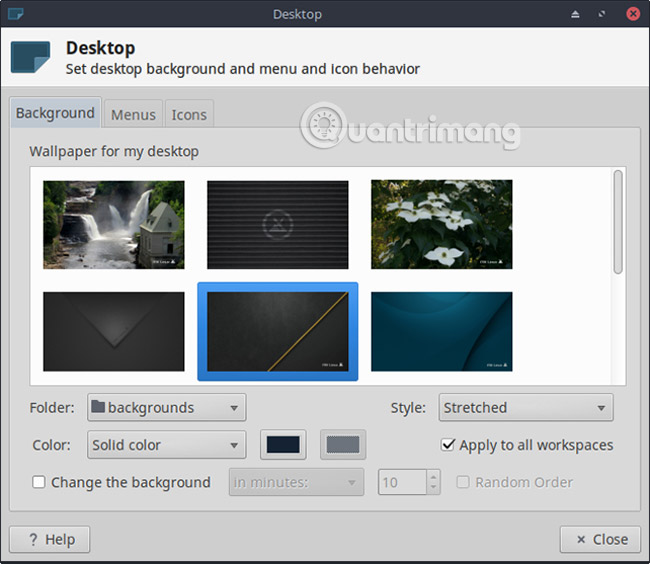
Just like in Windows, you can adjust the look of the desktop and menu system using these settings. Pretty simple, right?
Taskbar settings
By default, the taskbar taskbar (here called Panel) is placed vertically on the left side of the screen.
You can quickly change this by right-clicking on the taskbar and selecting Panel > Panel Preferences.
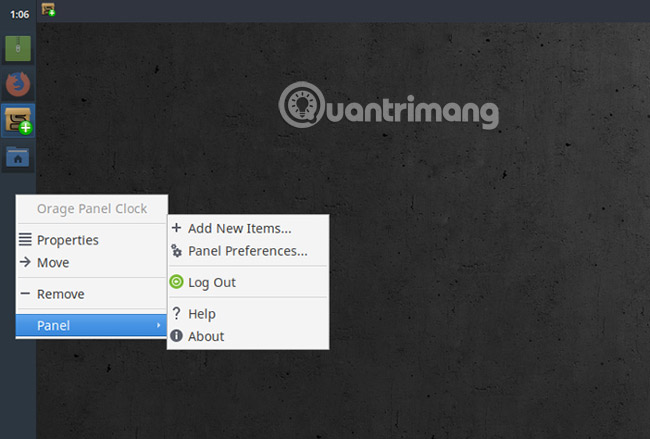
Here, you can change the taskbar vertically or horizontally by changing the Mode selection .
If you want to change the location of the taskbar, uncheck the Lock panel.
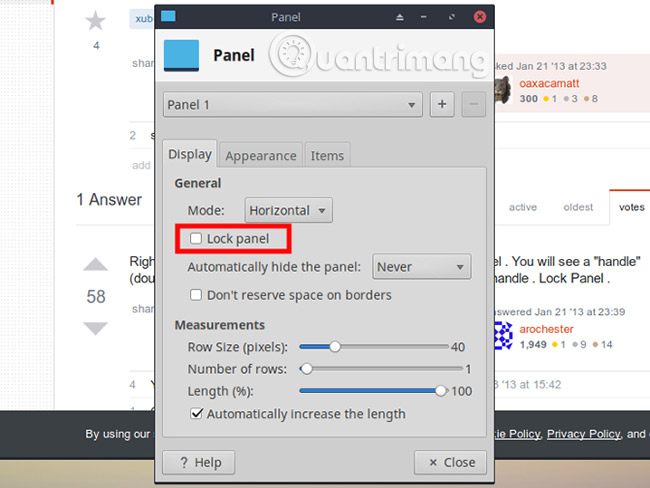
After unlocking, you can move the taskbar to another location you want on the screen, for example, down below.
Sorting the taskbar items by default is also the opposite of Windows: Start Menu on the right and the time on the left. You can change this by right-clicking on each icon and selecting Move.
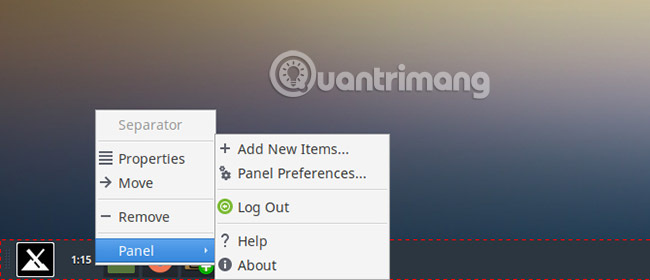
Then, just drag it to the location you want on the taskbar.
Use the new Linux operating system
Once you have everything set up and they look similar to the Windows desktop, it's time to start exploring this new operating system.
When you click on the Start menu , you will see that it looks like an enhanced version of the Windows 7 Start menu.
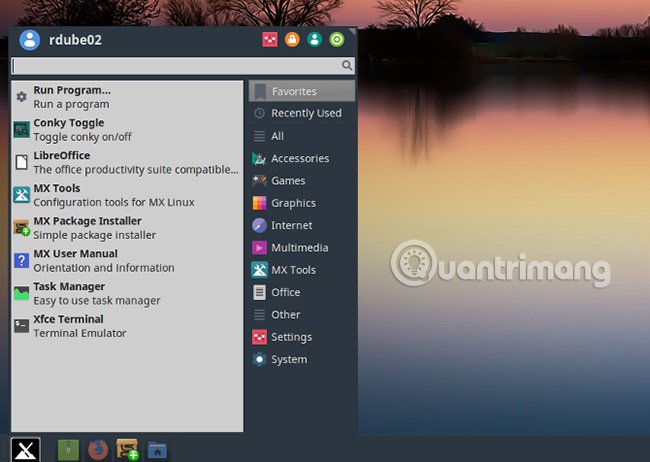
Apps are easy to find, grouped into important categories like Favorites, Recently Used, Look out , in Settings or System options. You will need these to configure everything.
When you click Settings and scroll down, you'll see options for network cards, Bluetooth connectivity, new hard drives, or any other hardware you want to set up or configure.
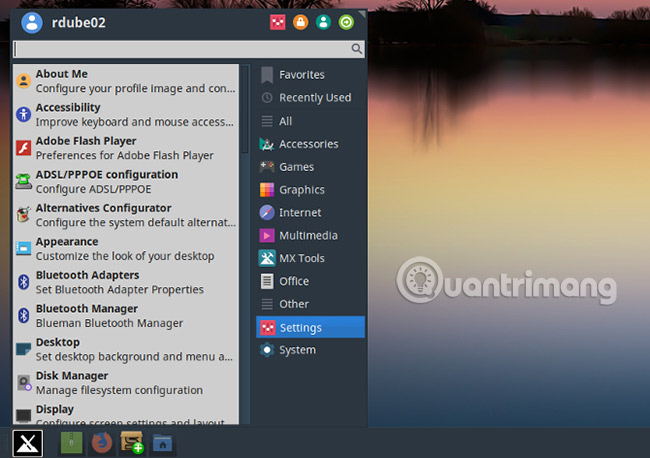
If the complexity of having to run all 'sudo' commands to do anything in Linux makes you hesitate to try this operating system, don't worry about it here.
The great thing about using MX Linux as a Windows user, is that you don't have to spend any time researching it.
If you've tried different Linux distributions for years, then you know that usually the control windows are a bit different. That is really annoying, when you get used to the way Microsoft set up control windows for years.
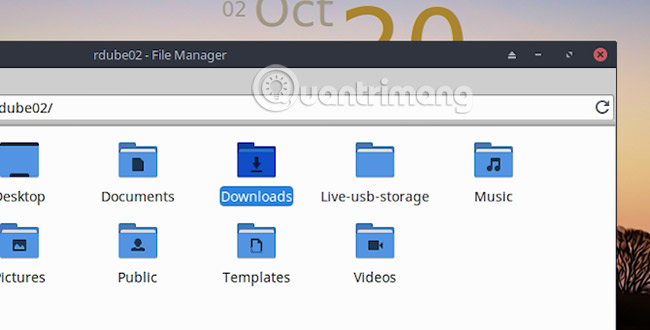
The designers of MX Linux tried to mimic familiar control windows from Windows. More amazingly, the original File Manager itself is configured to look almost exactly like what you normally see in Windows.
In the left navigation menu, you already have the root file system and below is Home (you can view your User folder in Windows), as well as Trash bin and Network browser .
The Home folder is also configured as in Windows, with Documents, Pictures, Videos and Music folders .
A small difference when you get used is opening the folders with just one click, but the user is easy to get used to this step.
Read more about MX Linux
After you've adjusted this new (but familiar) environment, you're ready to start learning more about it.
You will be amazed at the power of Linux MX at your fingertips, without spending a cent or having to register any monthly service pack.
It's time to install the software suite you want to use on your new operating system. Click on the Start menu and search for the MX Package Installer.
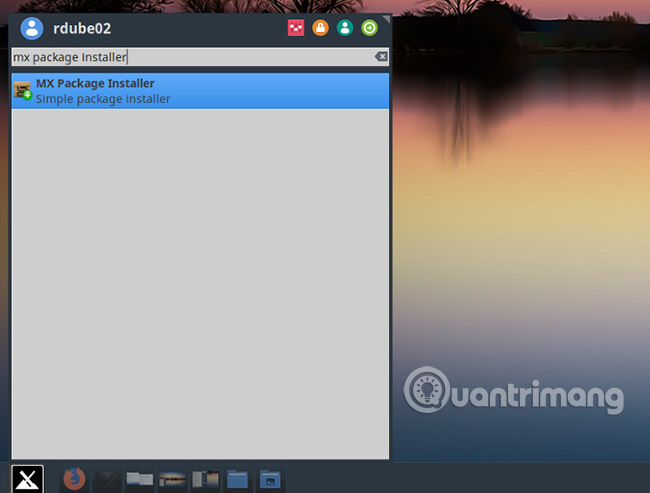
Scroll down to MX Package Installer and expand each folder to find the applications you are used to.
You will find many categories including a long list of applications that look very familiar to you.
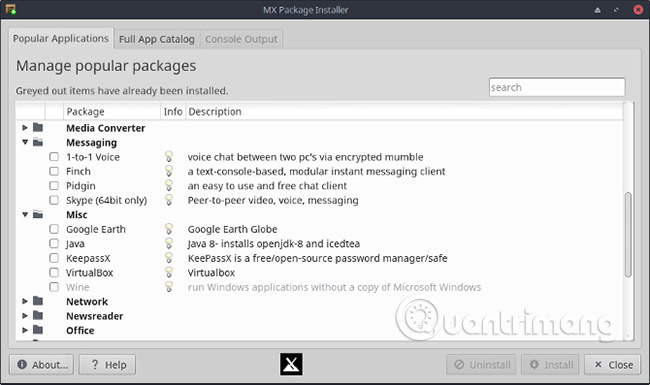
You should install the applications you are used to using on Windows. This will help make your new operating system as familiar and full-featured as possible.
- Audacity: Edit audio
- Chrome or Firefox: Browse the web
- Filezilla: FTP client
- GIMP Full: Advanced image editing
- Kodi or Plex: Media server
- Skype: Video messaging
- KeepassX: Password manager
- Dropbox: Synchronize files for your Dropbox account
- Adobe Reader: Read PDF files
- HP Printing: Print management to HP printers
- Shutter: Take a screenshot
By default, MX Linux comes with LibreOffice preinstalled, so you don't have to worry about installing any Office applications. You also get FeatherPad as a great alternative to Notepad.
Enjoy the 'new' PC with MX Linux
Nothing is better than "creating a new wind" for your old desktop or laptop computer.
Linux always has the potential to do this and Linux MX goes one step further: Bringing a completely new operating system to the Windows environment at zero cost.
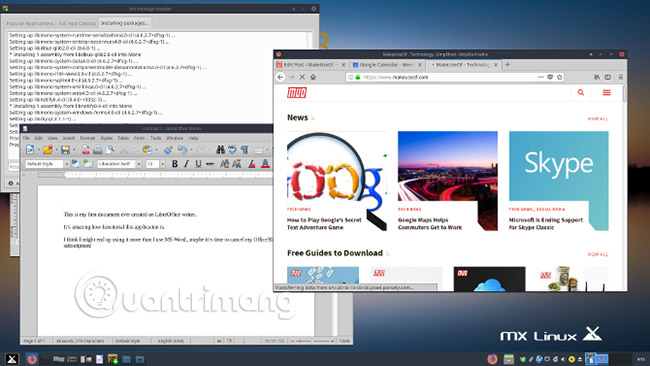
In fact, if you are considering buying a new computer, you can save a small amount of money, by buying a computer without installing any operating system. Simply install MX Linux to get a super fast computer without spending time learning anything, even if you are using a completely new operating system.
Good luck!
See more:
- 5 ways to make Linux desktops look great
- How to use Conky to make Linux more awesome
- 8 easy tools to create your own Linux Distro